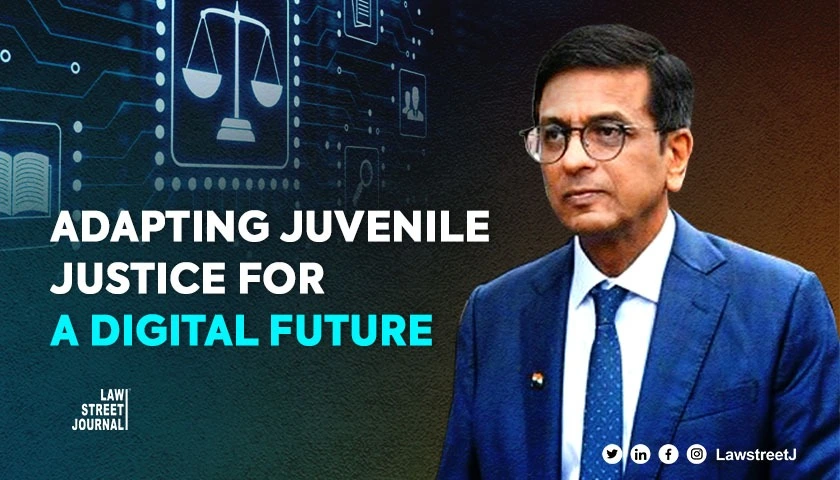NEW DELHI: Chief Justice of India D Y Chandrachud on Saturday emphasised the need for adaption of best international practices in juvenile justice system, saying with rapidly evolving technology, minors are diving into cybercrimes like hacking, cyberbullying, online fraud, and digital harassment.
He said anonymity and accessibility of digital platforms lower barriers to entry, luring young individuals into illicit activities.
"There is a need for proactive measures to educate and safeguard young individuals in the digital age, emphasising digital literacy, responsible online behaviour, and effective parental guidance as crucial components in mitigating cyber-related risks," CJI Chandrachud said.
The CJI, who is on a three-day official visit to Nepal at the invitation of Chief Justice of Nepal Bishowambhar Prasad Shrestha, was speaking in national symposium on Juvenile Justice.
"When discussing juvenile justice, we have to recognise the vulnerabilities and unique needs of children embroiled in legal conflicts and ensure that our justice systems respond with empathy, rehabilitation, and opportunities for reintegration into society," he said.
The CJI said it is crucial to grasp the multifaceted nature of juvenile justice and its intersections with various dimensions of the societies.
Citing an example of "Momo Challenge", he said it was a viral hoax that spread through social media platforms in 2019, targeting children and adolescents. This hoax purported a series of escalating dares, including self-harm or suicide, although it was later debunked.
"Its rapid dissemination highlights the susceptibility of juveniles to online dangers. There is a need for proactive measures to educate and safeguard young individuals in the digital age, emphasising digital literacy, responsible online behaviour, and effective parental guidance as crucial components in mitigating cyber-related risks," he said.
In order to address the transnational nature of digital crimes involving juveniles, he stressed the need for establishing protocols for extradition and repatriation, as well as facilitating information sharing and cooperation between law enforcement agencies.
At the domestic level, he said, specific training in child protection rules is essential to ensure that all stakeholders involved in the juvenile justice system have the necessary knowledge and skills to safeguard the rights and well-being of children.
This training should encompass various aspects of child protection, including understanding child development, recognising signs of abuse or neglect, and familiarising oneself with relevant laws and procedures, he said.
Moreover, training programs should incorporate principles of trauma-informed care, emphasising sensitivity and empathy towards juvenile offenders who may have experienced adverse experiences, he said.
"Quite often, we focus more on offences committed by juveniles than reflecting on their reformation. It thus becomes essential to acknowledge the complex nature of juvenile delinquency and take a comprehensive approach that addresses the underlying socio-economic factors contributing to such behaviour," he said.
The CJI said children entered the world with a clean slate. Universally, the innocence of children has been acknowledged as integral to their being and conduct. However, when a child encounters the legal system, it prompts society to introspect on the underlying systemic issues that may have driven them to commit a crime. As a population group, children are also the most disenfranchised and susceptible to oppression. These factors necessitate a sensitive and reform-oriented approach to children in conflict with the law as well as child victims of various crimes, he said.
"By investing in strategies that prevent, intervene, and rehabilitate, we can build a society that is more inclusive and provides every child with the opportunity to fulfil their potential," the CJI said.
Justice Shrestha, Chief Justice of Nepal; Bhagbati Chaudhary, Minister, Ministry of Women, Children and Senior Citizens; Padam Giri, Minister, Ministry of Law, Justice and Parliamentary Affairs; Alice Akunga, UNICEF Representative to Nepal; Justices of Supreme Court of Nepal, Members of Judicial Council, Attorney General of Nepal were present on the occasion among other eminent persons.

















